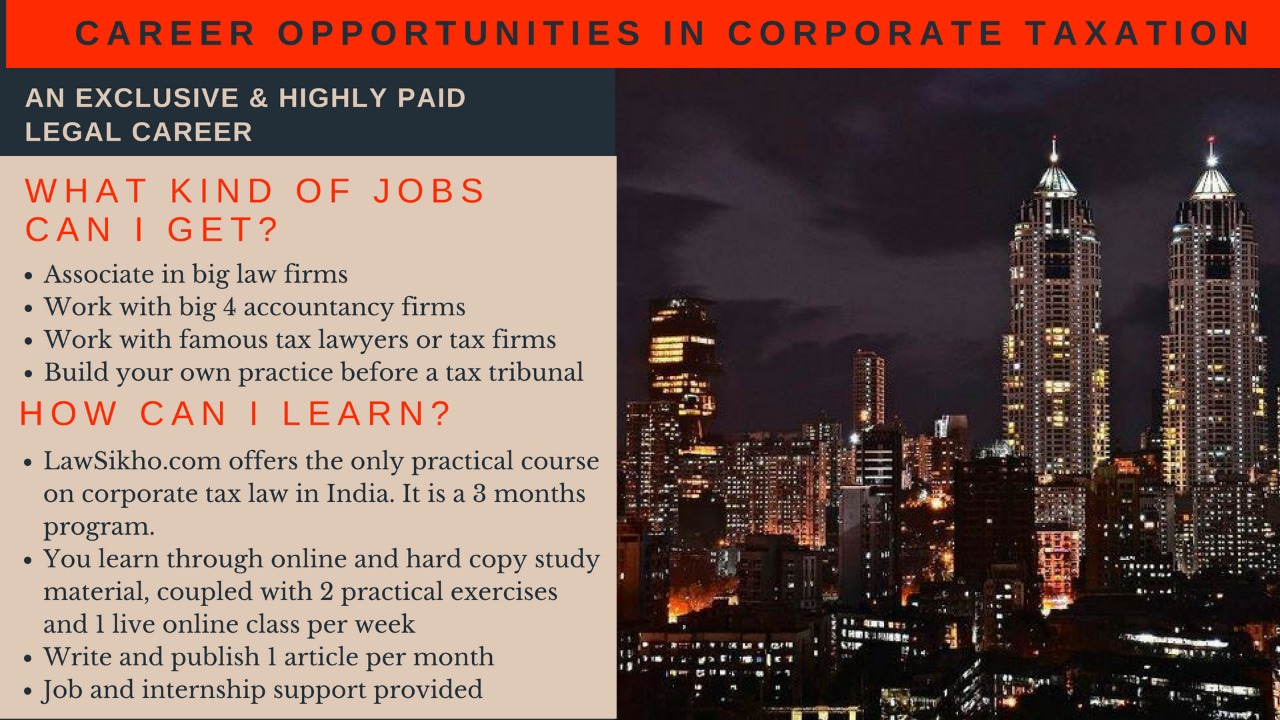This article is written by Namrata Singhal who is pursuing an Executive Course in Advanced Corporate Taxation from Lawsikho.
Table of Contents
Introduction
Globalization has enabled the cross-border mobility of businesses comprising a plethora of international transactions. Businesses are equipped to function and establish offices globally. For a corporate company to operationalize its business in the foreign company, it may either function through shops, employees or an agent. When any foreign entity functions in India through its employees deputed in the Indian company, it is said to establish a service permanent establishment (“PE”) in India. The salary of the deputed employees to the Indian company are reimbursed to the foreign company which attracts tax liability in India. The imposition of such tax liability is subject to accomplishment of the fact that the deputed employees formed PE in India.
In addition to it, the deputation of employees will attract tax liability in India if the reimbursed salaries are in the nature of fees for their technical services. That is to say, if the employees were providing technical services, technical know-how, expertise and skills to the Indian company.
What is a Secondment Agreement?
The arrangement of sending employees ‘secondee’ by one employer to another employer (also known as the host) for a definite period temporarily is known as secondment of employees. It can be internal (within the organization) and external (outside the organization or in a separate company). In the aforementioned circumstances, the deputation of employees from one entity to another is governed by ‘secondment agreement’. Since the secondees are deputed by the employer, the salaries of the seconded employees are not directly paid to the secondees, but are reimbursed to the employer by the host.
The legal issue arising in the employee secondment is the determination of tax liability. That is, whether the reimbursement of salaries attracts tax liability in their home country or the country where the employees are seconded. This is one of the most controversial areas as the legal argument in this regard substantially depends upon the nature of the work and degree of control of the seconded employees. According to Klaus Vogel commentary, the employer-employee relationship is governed by the control and supervision of the economic employer.
To determine the tax implications, the Income Tax Act, 1961 (“Act”) and the Double Tax Avoidance Agreement (“DTAA”) entered between the countries are referred to, wherein, the most beneficial tax laws prevail over others.
 When the reimbursement of the salary is fees of technical services
When the reimbursement of the salary is fees of technical services
In the case of Centrica India Offshore Pvt. Ltd vs. CIT, the issue of whether the services provided by the secondees to the Indian entity constituted ‘fees for technical services’ to be accordingly taxable in India was raised. The facts of the case specify that the establishment of the Indian entity was to perform the back-office functions and to ensure the quality standards. The parties entered into the secondment agreement so that the secondees could support the initial years of establishment of the Indian entity. To accomplish this objective, the secondees ‘made available’ their expertise and skills to the Indian entity. In essence, this fell under the ambit of ‘fees for technical services’ according to the India-UK DTAA and was made taxable in India.
The ITAT Bangalore in 2017 in the case of Ms Flughafen Zurich AG v. Deputy Director of Income Tax, held that the reimbursement of salaries of the secondees to the taxpayer (i.e. the foreign entity) attracts tax liability in India. The facts of the case states that the taxpayer was a Swiss company which seconded its employees to the Indian company (“entity”) under a secondment agreement for a definite period. The secondees held high managerial positions and were under the control and supervision of the entity. The taxpayer was not responsible for the conduit of the secondees under the agreement. It has observed that the payments made to the taxpayers as reimbursed salaries, qualified as fees for technical services because such employees held high managerial positions. Also, the status quo of the seconded employees (employer-employee relationship) did not change during the secondment. Thus, the reimbursed salary costs were subject to tax in India. The question of the control and supervision by the entity was not considered by the court.
Similarly, this position was resettled in 2019 in the case of Nippon Paint (India) Pvt. Ltd. v DCIT, where the court held that the reimbursement was taxable in India. This is because the secondees share an employer-employee relationship with the taxpayer (foreign entity) and the temporary deployment of the secondees resulted in the exchange of experience, knowledge and skills.
The ITAT Pune in 2019 in the case of M/s.Faurecia Automotive Holding v DCIT held that since partial reimbursement of the salaries cost were not ‘fees for technical services’, such costs will not be taxable in India. The court observed that the secondees were under the control and supervision of the Indian entity. Moreover, the secondees were the ultimate recipient of the salaries which were beyond the scope of fees for technical services under section 9(1)(vii) of the Income Tax Act, 1961.
When the secondees form PE in India
Another position that has been established by the Indian courts with respect to the reimbursement of salaries to the secondees is the establishment of service PE in India. A service PE in simple words means that the foreign entity is conducting its operations India through its employees who have been seconded in Indian entity or in any Indian company which is either a subsidiary of the foreign entity or is wholly or partly owned by the foreign entity. Such income accrued to the foreign entity is taxable in India. It is pertinent to note that here ‘fees for technical services’ will not be relevant and the profits attributable to the foreign entity through the service PE will be taxable in India.
The position can be understood from the infamous case M/s DIT (International Taxation), Mumbai vs M/s Morgan Stanley & Co. INC where Morgan Stanley Co. based in the USA sent their employees to MSAS Co. in India. The deputation was to undertake stewardship activities in India to enforce quality control standards. The issue before the Supreme Court case to examine whether MS Co. forms a service PE in India according to India-US DTAA or not.
It was held that MS Co. was not rendering services to MSAS and the deputed personnel were merely performing stewardship activities to protect their own interests in the competitive world by ensuring the quality and confidentiality of MSAS services. So the supervisory nature of work undertaken by the secondees was not considered as the constitution of PE according to the India-US DTAA.
It can be inferred that merely providing services to the Indian entity to maintain global standards or assisting in their day to day work by the secondees does not constitute service PE in India. However, the positions will be tweaked if they are taking any key decisions or managing key functions for the company. Here, it is very important to highlight that the interpretation of the court is inclined more towards ‘substance’ than ‘form’ of the secondment.
In the Centrica judgement, it was held that service PE has been constituted in India. The court took the view that although the ‘control’ and ‘supervision’ vested with the Indian company vis-à-vis the functions of the secondees, they did not share the employer-employee relationship. The rationale behind their decision was that the foreign entity was the legal and economic employer of the secondees and not the Indian entity.
It is imperative to construe that the Indian entity has the power to terminate the ‘secondment agreement’ for the employment of the secondees and not their employment with the foreign entity itself. This power lies exclusively with the foreign entity which is the real or economic employer in true essence. The secondment agreement will be economic employment as per Klaus Vogen commentary because the right to terminate such agreement rests with the host or the Indian entity.
Conclusion
The courts have taken cognizance into the nature of work, authority, autonomy and kind of duties taken up by the secondees and not their positions in the Indian entity per se. In addition to it as settled in Morgan Stanley’s case, the tax liability is to be determined in consonance with the degree of control and supervision of the Indian entity. The right to terminate employment with the foreign entity is held by the foreign entity is not the correct preposition to attract tax implications.
After analyzing the precedents on this legal issue, one can say that there has not been any firm position taken by the court. The decisions are ultimately dependent upon the arrangements between the parties, different facts and circumstances governing the cases and tax treaties with different countries. In addition to it, it is imperative to determine the substance and not the form of the secondees under the secondment agreement.
https://t.me/joinchat/J_0YrBa4IBSHdpuTfQO_sA
Follow us on Instagram and subscribe to our YouTube channel for more amazing legal content.
 Serato DJ Crack 2025Serato DJ PRO Crack
Serato DJ Crack 2025Serato DJ PRO Crack











 Allow notifications
Allow notifications


